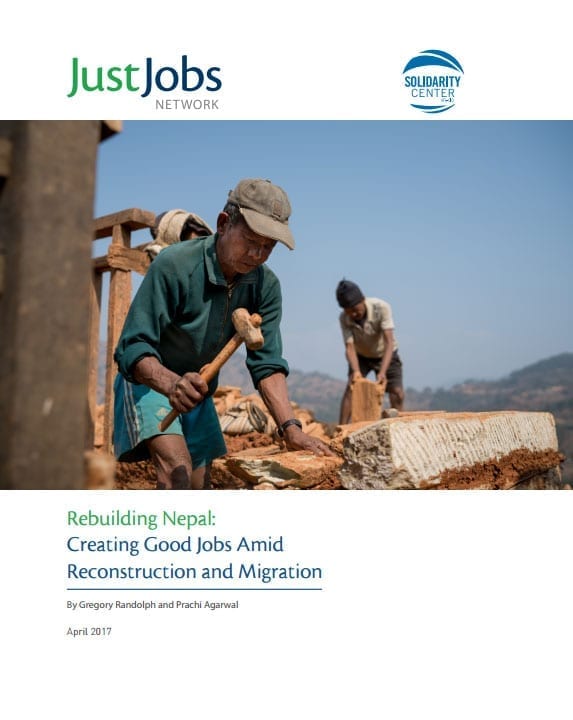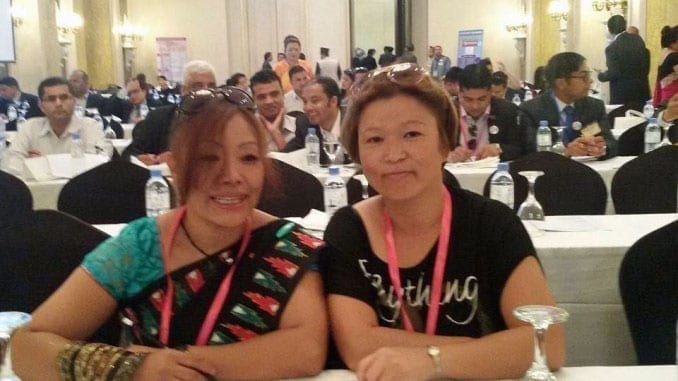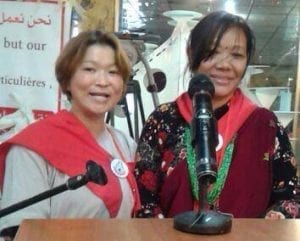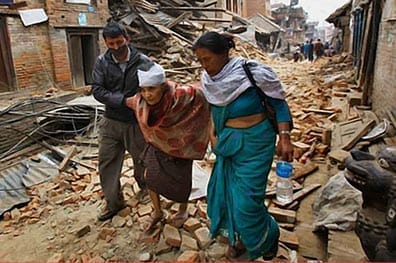Apr 27, 2017
Two years after Nepal’s powerful earthquake, slow pace of reconstruction offers an opportunity for the nation to change its economic model, which leans heavily on remittances from Nepali migrant workers. It is a “unique moment” to create jobs that protect workers’ rights, pay fair wages and boost the economic status of its citizens, according to a new report by U.S.-based groups Solidarity Center and JustJobs Network.

Apr 25, 2017
This JustJobs and Solidarity Center report asserts that post-earthquake Nepal is at a unique moment when it can leverage the reconstruction process to protect worker rights and ensure that migration out of the country for work is a choice, not a necessity.
Download here.

Dec 15, 2016
Some two dozen human rights organizations are condemning the detention of two Nepali domestic workers in Lebanon, one of whom was deported.
Sushila Rana and Roja Maya Limbu were detained “without formal and clear explanation of the charges levelled against them,” according to the International Domestic Workers Federation (IDWF). Rana was deported December 10 (International Human Rights Day), while Limbu has been detained for more than a week without access to a lawyer.
(Your organization can sign the joint statement by IDWF, the International Trade Union Confederation (ITUC), Human Rights Watch and other human rights organizations.)

Sushila Rana and Roja Maya Limbu spoke at the founding congress of the domestic workers’ union in Lebanon in January 2015. Credit: IDWF
The two woman helped found the domestic workers’ union in Lebanon in January 2015.
“This is a serious violation of basic human rights and (the International Labor Organization’s) core conventions on the right to organize and on freedom of association,” says Myrtle Witbooi, IDWF president. “We also call on the government of Lebanon to observe and abide by Article 9 of the International Covenant on Civil and Political Rights (ICCPR), which ensures the right to be free from arbitrary arrest and detention.”
Migrant Workers Exploited, Have Few Rights
Migrant workers to the Middle East are rarely protected by labor laws and generally denied the ability to exercise fundamental human rights, including freedom of association, which makes them vulnerable to exploitation and abuse, according to a recent report by the United Nations Special Rapporteur on freedom of assembly and of association. Migrant domestic workers in Lebanon commonly report non-payment of wages, forced confinement, employers’ refusal to provide time off, and verbal and physical abuse.
Like most migrant workers around the world, many are forced to go into debt to pay excessive fees to labor brokers to obtain the jobs. Once in the country, they are governed by the repressive kafala system, which ties a domestic workers’ visa and work permit to one employer. Kafala results in situations where employers have unchecked control over migrant workers, exposing the latter to greater risk of exploitation and abuse.
Freedom of movement for the estimated 250,000 migrant domestic workers in Lebanon is restricted by employers who take workers’ passports and laws that limit their access to public places like restaurants, unless accompanied by their employer.
A 2010 Human Rights Watch report said that migrant domestic workers in Lebanon were dying of unnatural causes at a rate of one per week. Most of the deaths were attributed to suicide — many of the victims were falling from buildings while apparently trying to escape their employers.

Apr 27, 2015
With thousands of people dead and even more made homeless in Nepal following a devastating magnitude-7.8 earthquake, Solidarity Center union allies in the country are reporting no casualties among their staff and are organizing to support relief efforts in the Nepali capital.
The General Federation of Nepalese Trade Unions (GEFONT), which represents mostly blue-collar workers, the Nepal Trade Union Congress (NTUC), which includes teachers and other white-collar workers and the Joint Trade Union Coordination Center (JTUCC), the umbrella organization of GEFONT and the NTUC, say their employees are safe and now working to provide disaster relief. Both GEFONT and the NTUC represent many workers in the tourist industry.
“Kathmandu valley is unimaginably destroyed,” says Bishnu Rimal, GEFONT president. “It is the most terrible quake we have ever experienced. Chilling cold, plus rain, lack of tents and [continuous] jolts is sufficient to scare people. It has disturbed even rescue work.”
The earthquake hit central Nepal on Saturday, from Mount Everest to Kathmandu and further west, wiping out entire villages. As rescue teams began to arrive from around the world, much of the stricken area remained inaccessible, locked in mountainous terrain with some roads blocked by landslides.
In letters to Rimal and Khila Dahal, NTUC general secretary, AFL-CIO President Richard Trumka expressed heartfelt condolences and solidarity.
“We will … work with the global labor movement to ensure that the working families impacted by this tragedy receive the support needed to rebuild their communities,” Trumka said.
The earthquake and aftershocks were felt as far away as Dhaka, Bangladesh, where one garment worker was killed and more than 200 injured as workers rushed out of factories when the quake hit.
At least one worker reported to Solidarity Center staff there that he took successful safety measures at his factory when the quake hit because of skills he learned at a recent Solidarity Center’s fire and building safety training. In recent months, the Solidarity Center has held a series of safety trainings for garment workers near Dhaka and Chittagong, where most factories are located. The 10-day trainings provide workers with hands-on fire and building safety experience, which includes steps to take during earthquakes.




